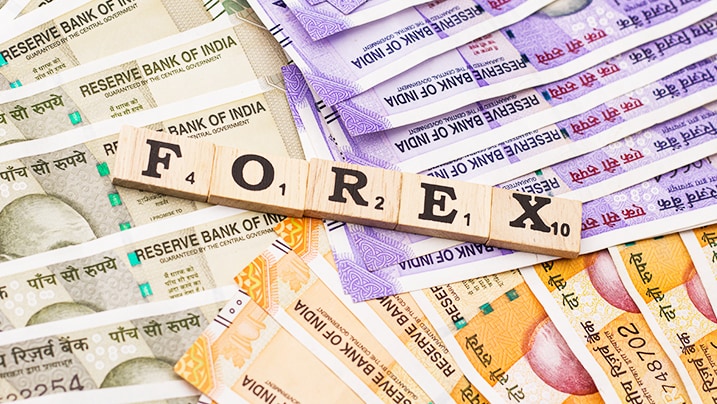
The hours of trading vary by time zone. New York, London, Sydney, and other major cities all have different opening hours. Below is the list of hours major currencies trade each city. It can be difficult to know when to buy and sell due to these time differences. If you're looking for a forex trading opportunity that works well for you, consider the time zone that suits you best.
Sydney: Trading hours
There are two major trading sessions in the Forex market: the New York session and the Sydney session. The Sydney Market opens at 5:00 EST Monday through Tuesday. It closes at the same hour on Tuesday. New York is the busiest session, with the most trades happening on those days. The Sydney session is a little quieter, however.
The Sydney session is known as the FX spot session, which is open for 16 hours a day. This session is open during liquidity hours and high activity. The spot session is a very popular time to trade and traders can earn significant profits. The Tokyo session has less liquidity and activity compared to the Sydney session.

New York: Trading hours
New York's foreign exchange market is one among the most liquid. Its trading hours overlap with the London session and Asian session. The New York session opens and closes at 8:00 AM ET. The London session, on the other hand, opens at 3:00 AM ET. It closes at 12:00 ET. New York's session is thus often more active.
Forex trading in New York occurs daily. The trading hours are between 5:00 PM ET - 6:00 PM ET. It also overlaps in the early hours with the London session. This means that trading could be affected by public holidays and market conditions.
London: Trading hours
The London session is the most active time on the currency market. High volumes are seen in major currency pairs during this period. Among these, the EUR/USD, USD/JPY, and GBP/USD are most likely to see high volume during the London session. These currencies are also most affected by interbank transactions.
One third of global forex turnover is handled by London's forex market. The London session is open from 3 AM UK time to 12:00 PM British Standard Time. The London session overlaps regularly with the New York one throughout the year. Traders in London need to find the best times for trading.

Tokyo Stock Exchange Trading Hours
Forex trading hours for Tokyo are slightly different to those in London and the United States. Tokyo traders will notice a much lower volume during the day. The Asian session will be quieter so traders have more time and space to analyze risk and manage trades. They will also be more able to see trading ranges and support and resistance levels.
The Tokyo forex market opens at 12am UK time and closes at 9am UK time. It is one of the largest forex trading centers in the world. It's estimated that approximately one-fifth of all forex transactions take place in Tokyo. It is expected that the Asian session will see more movement of the yen, and Asian Pacific currency pairs.
FAQ
How do I invest my money in the stock markets?
Brokers can help you sell or buy securities. A broker buys or sells securities for you. You pay brokerage commissions when you trade securities.
Brokers often charge higher fees than banks. Banks often offer better rates because they don't make their money selling securities.
To invest in stocks, an account must be opened at a bank/broker.
A broker will inform you of the cost to purchase or sell securities. This fee is based upon the size of each transaction.
Ask your broker:
-
You must deposit a minimum amount to begin trading
-
How much additional charges will apply if you close your account before the expiration date
-
What happens when you lose more $5,000 in a day?
-
How long can you hold positions while not paying taxes?
-
What you can borrow from your portfolio
-
How you can transfer funds from one account to another
-
How long it takes for transactions to be settled
-
the best way to buy or sell securities
-
How to Avoid Fraud
-
How to get help if needed
-
Can you stop trading at any point?
-
If you must report trades directly to the government
-
Whether you are required to file reports with SEC
-
How important it is to keep track of transactions
-
What requirements are there to register with SEC
-
What is registration?
-
How does it affect you?
-
Who is required to be registered
-
When should I register?
What is a bond?
A bond agreement between 2 parties that involves money changing hands in exchange for goods or service. It is also known as a contract.
A bond is typically written on paper, signed by both parties. This document includes details like the date, amount due, interest rate, and so on.
The bond is used when risks are involved, such as if a business fails or someone breaks a promise.
Bonds are often used together with other types of loans, such as mortgages. This means the borrower must repay the loan as well as any interest.
Bonds are also used to raise money for big projects like building roads, bridges, and hospitals.
A bond becomes due upon maturity. When a bond matures, the owner receives the principal amount and any interest.
Lenders lose their money if a bond is not paid back.
What is security?
Security is an asset that generates income for its owner. Shares in companies are the most popular type of security.
Different types of securities can be issued by a company, including bonds, preferred stock, and common stock.
The earnings per shared (EPS) as well dividends paid determine the value of the share.
If you purchase shares, you become a shareholder in the business. You also have a right to future profits. If the company pays a dividend, you receive money from the company.
You can sell your shares at any time.
What is a fund mutual?
Mutual funds consist of pools of money investing in securities. They allow diversification to ensure that all types are represented in the pool. This reduces risk.
Professional managers are responsible for managing mutual funds. They also make sure that the fund's investments are made correctly. Some funds permit investors to manage the portfolios they own.
Mutual funds are preferable to individual stocks for their simplicity and lower risk.
What's the role of the Securities and Exchange Commission (SEC)?
Securities exchanges, broker-dealers and investment companies are all regulated by the SEC. It also enforces federal securities laws.
Who can trade in the stock market?
The answer is yes. All people are not equal in this universe. Some people have better skills or knowledge than others. They should be rewarded.
But other factors determine whether someone succeeds or fails in trading stocks. If you don't understand financial reports, you won’t be able take any decisions.
Learn how to read these reports. You need to know what each number means. You must also be able to correctly interpret the numbers.
You'll see patterns and trends in your data if you do this. This will help you decide when to buy and sell shares.
And if you're lucky enough, you might become rich from doing this.
How does the stock market work?
By buying shares of stock, you're purchasing ownership rights in a part of the company. The shareholder has certain rights. He/she has the right to vote on major resolutions and policies. He/she can seek compensation for the damages caused by company. And he/she can sue the company for breach of contract.
A company can't issue more shares than the total assets and liabilities it has. This is called capital sufficiency.
A company that has a high capital ratio is considered safe. Companies with low ratios of capital adequacy are more risky.
Statistics
- Our focus on Main Street investors reflects the fact that American households own $38 trillion worth of equities, more than 59 percent of the U.S. equity market either directly or indirectly through mutual funds, retirement accounts, and other investments. (sec.gov)
- For instance, an individual or entity that owns 100,000 shares of a company with one million outstanding shares would have a 10% ownership stake. (investopedia.com)
- US resident who opens a new IBKR Pro individual or joint account receives a 0.25% rate reduction on margin loans. (nerdwallet.com)
- Ratchet down that 10% if you don't yet have a healthy emergency fund and 10% to 15% of your income funneled into a retirement savings account. (nerdwallet.com)
External Links
How To
How to Trade in Stock Market
Stock trading refers to the act of buying and selling stocks or bonds, commodities, currencies, derivatives, and other securities. Trading is a French word that means "buys and sells". Traders are people who buy and sell securities to make money. It is one of oldest forms of financial investing.
There are many different ways to invest on the stock market. There are three basic types: active, passive and hybrid. Passive investors watch their investments grow, while actively traded investors look for winning companies to make a profit. Hybrid investors take a mix of both these approaches.
Passive investing can be done by index funds that track large indices like S&P 500 and Dow Jones Industrial Average. This method is popular as it offers diversification and minimizes risk. You just sit back and let your investments work for you.
Active investing is about picking specific companies to analyze their performance. Active investors will look at things such as earnings growth, return on equity, debt ratios, P/E ratio, cash flow, book value, dividend payout, management team, share price history, etc. They decide whether or not they want to invest in shares of the company. If they feel that the company's value is low, they will buy shares hoping that it goes up. They will wait for the price of the stock to fall if they believe the company has too much value.
Hybrid investing blends elements of both active and passive investing. A fund may track many stocks. However, you may also choose to invest in several companies. In this scenario, part of your portfolio would be put into a passively-managed fund, while the other part would go into a collection actively managed funds.